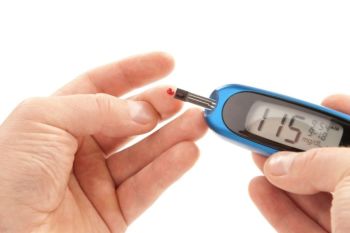- Home
- Dr Sultan Linjawi
Type 1 Diabetes
Type 2 Diabetes
Prediabetes
Gestational Diabetes
- Diabetes Information
- Testimonials
Diabetes might be the reason you feel so tired and fatigued. Here is why.
What Causes Fatigue in Prediabetes?
Chronic tiredness or ‘fatigue’ is more than just feeling a bit weary. If you are struggling to get up in the morning; feeling a total lack of energy or ‘fogginess’ or not able to perform the tasks you normally do as simply too exhausted it may be that you actually are suffering from fatigue... and it could be a side effect of your diabetes.
Although diabetes medications generally do not result in symptoms, fluctuations in blood sugars can definitely have an effect.
It is always a good idea to check with your doctor if you are feeling fatigued as it could be a number of other health problems such as anaemia; cancer; coeliac disease; vitamin B12 deficiency; low testosterone levels, kidney disease, thyroid issues or even as a consequence of depression.
PreDiabetes Content |
|---|
| PreDiabetes Program |
| Overview |
| Risk Factors |
| Symptoms |
| Diagnosis |
| Complications |
| Treatment |
| Diet |
| Monitoring |
| Tools |
| Mental Health |
| Prevention |
Why does fatigue occur?
Fatigue can occur for many reasons but here are 3 important ones to consider:
- Poor blood circulation which results in less oxygen and energy supply to the brain
- Long–term inflammation in the body (e.g. from arthritis) so effectively the body is at “war” and the brain is sent messages that the body needs to rest and repair itself.
- Complications such as kidney disease where there is red cell damage and less oxygen in the body.
Fatigue in prediabetes is common and occurs for a number of reasons. High and low blood sugars can cause tiredness so it is important to check your sugars when feeling like this to try and get a clearer picture of the cause.
Causes of Fatigue in Prediabetes
This is a list of the main causes of fatigue in prediabetes. For a full description please read each heading:
- High blood sugars
- Low blood sugars
- Sleep disorders
- Weight gain
- Testosterone imbalance
- Other unrelated medical conditions
- Stress and anxiety
High Blood Sugars (Hyperglycaemia)
When blood sugars are high the cells in your body are not able to access the sugars they need for energy and effectively are ‘starving’. This is either as a result of an insufficient supply of insulin from the pancreas or the body has become resistant to insulin as the levels have been high over some time and the insulin is no longer working effectively (insulin resistance).
The irony is that even though the remedy for the fatigue is in the bloodstream (sugar for energy), the body cannot access it and makes you feel tired. Often the symptoms of fatigue build up slowly so that you may not necessarily know just how badly you are affected until after treatment and sugar levels normalize once again.
If blood sugars are high after meals and you are feeling tired it could be that more insulin is required with the meal. It is important to check blood sugars both before and 2 hours after meals to see if this is a problem for you.
Low Blood Sugars (Hypoglycaemia)
If you have ever experienced a ‘hypo’ then you will know just how fatigued you can feel for some time afterwards as the body/brain needs time to recover and take on adequate glucose to be able to function normally. Left untreated, hypoglycaemia is life-threatening and ongoing frequent low blood sugars have been linked to many medical problems.
If you are suffering from low blood sugars and do not know the reason it is vital that you talk to your medical team as it could be a result of your medication.
Many people with prediabetes will have low blood sugars particularly after eating high carbohydrate meal. This is called reactive hypoglycaemia and can be really debilitating.
Sleep Disorders causing Fatigue in Prediabetes
There is no doubt about it… ongoing disruptive sleep is extremely bad for our health and causes chronic fatigue. Generally, we all need about 6-8 hours of sleep a night with less sleep needed as we get older. Quality of sleep is really important and if disrupted on a regular basis can cause all sorts of problems to our health. Examples of this are as a result of getting up to go to the toilet overnight for example with an enlarged prostate, depression or hypoglycaemia.
Obstructive sleep apnoea (OSA) is thought to affect over 100 million people globally with 80% undiagnosed. It occurs when the airways are obstructed during sleep, preventing breathing for anything between 10-30 seconds at a time and can happen up to a whopping 400 times a night in severe cases.
The effects on health are numerous and not limited purely to fatigue with double the amount of hypertension and heart disease as well as depression and weight gain occurring as a result of chronic tiredness. It is more likely to occur in men as the neck width is thought to be an important factor; if you are middle-aged or overweight. Bed partners of those with OSA also can suffer with fatigue losing up to an hour of sleep a night. If you think you may have sleep apnoea there are remedies available and it is important to talk to your doctor who can organize a screening test.
Weight Gain and Fatigue in Prediabetes
Weight gain in diabetes (and as a cause of diabetes) results in insulin resistance which then has a domino effect culminating in high blood sugars and fatigue. Even a 20kg increase in weight has an enormous impact on our body carrying the extra around so it is not surprising that it can be a vicious cycle as tiredness leads to less activity; poorer food choices as no energy to prepare or shop for meals; poor body image and depression.
Low Testosterone in Prediabetes
In men, testosterone levels commonly decrease if overweight. Lower testosterone levels are known to cause tiredness and weight gain. Low testosterone levels also cause you to go to the toilet more often and can interrupt sleep.
Hormonal levels in women during menopause also fluctuate and can be a common time for weight gain to occur.
Do you have Prediabetes?
Follow the links below to learn more about our Prediabetes Program and blogs designed to stop or reverse diabetes developing.
Other Medical Conditions
There are a number of unrelated medical conditions that can lead to tiredness and fatigues in people with prediabetes but unrelated to prediabetes.
The list is long but things to consider include thyroid disorders, electrolyte imbalances, disorders of iron, vitamin B12 and folate to mention just a few. Your doctor will be able to rule these out with some simple tests.
Anxiety and Stress
When we are really stressed or anxious we often make poor choices which can impact on diabetes control. Missing insulin doses or medications; poor eating habits; not testing blood sugar levels; less motivation to exercise or do the things that normally would make us happier and more in control are some of the things that unhealthy levels of stress can cause. Sleep can also be disrupted and we can have difficulty getting to sleep which ultimately makes these feelings even worse. Stress also uses considerable energy and can make us feel very tired and even depressed if ignored or not helped.
What to do if you think you have diabetes related fatigue
Here are a few strategies that can help you to conquer your fatigue.
Make an appointment with your doctor
There could be many reasons why you are feeling fatigued. Your doctor can organize blood tests, review your medicines and help you to figure out if other factors such as sleep apnoea or weight gain could be contributing to your symptoms.
Monitor blood sugars and look for patterns of lows or highs
It is amazing how many of our patients tell us when their blood sugars have improved just how much better and more energized they feel… even if they thought they felt ok beforehand.
Try some exercise
Scientists have found that regular exercise can really help in reducing fatigue and can also help us feel happier.
Involve your family
Ask them if they have noticed any changes in you. Get them onboard with activities such as walking, cycling or even cooking healthier meal options together.
Please see the following articles for more information:
- Exercise snacking – An easy way to lose weight and exercise
- Yo-Yo Dieting – More serious than just gaining weight!
- Prioritising self when you have diabetes – Is it selfish?
- Too busy to manage diabetes? How to fit it in your schedule
- Type 2 diabetes signs and symptoms
- Motivating someone you care about with diabetes






